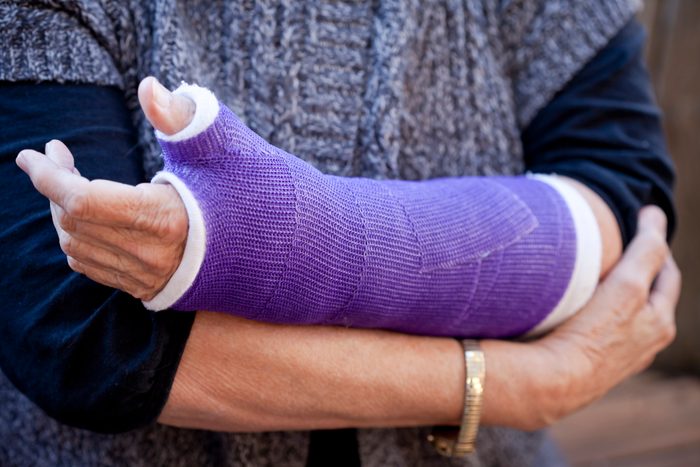
Doctors believe vitamin D can help with bone density. But is that still true?
Bone density may not seem important when you’re young, but after hitting peak bone mass between the ages of 25 and 30, your bones will slowly break down over time. Your bones lose calcium and other minerals, causing them to become frail and vulnerable to bone-related injuries. This is why medical professionals recommend proper nutrition and exercise to help strengthen aging bones, which includes getting a sufficient amount of vitamin D.
However, a recent study published in The New England Journal of Medicine claims taking vitamin D can’t actually help with preventing bone fractures, which contradicts what former medical experts have previously believed.
Here’s Why Too Much Vitamin D Can Cause Major Health Problems

Research shows vitamin D alone can’t prevent bone fractures
After evaluating 25,871 participants over a five-year span, researchers found no difference in terms of frequency of bone fractures between the group that took a vitamin D3 supplement versus the group that took a placebo. They concluded taking vitamin D3 supplements “did not result in a significantly lower risk of fractures than placebo among generally healthy midlife and older adults who were not selected for vitamin D deficiency, low bone mass, or osteoporosis.”
This claim is contradictory to what health experts previously believed about vitamin D supplements. While taking vitamin D has never been considered to be a prevention for bone fractures, experts have been recommending vitamin D supplementation to help strengthen aging bones for a while (some studies even dating back to 1997).
However, while the study does note that taking vitamin D3 supplements alone does not help with preventing bone fractures, it does not mention the combination of vitamin D along with calcium. This particular combination of micronutrients is key for strengthening bones based on how they work together within the body.

A combination of vitamin D and calcium is key
Vitamin D—whether it be from food sources (vitamin D2) or the sun (vitamin D3)—works as a hormone that helps with calcium absorption in the body by maintaining normal levels of calcium in the blood. Having normal levels of calcium is crucial since the body draws from calcium stored within the bones, which breaks them down over time.
Because bones break down as you age, taking vitamin D supplements and getting a sufficient amount of calcium (whether it be through calcium-rich foods or supplementation) has been highly recommended by medical professionals for the elderly. A deficiency in vitamin D means a deficiency in absorbing calcium, which can increase the risk of falls, bone fractures, as well as other serious conditions like cardiovascular disease and colon cancer.
However, if you don’t have enough calcium already, a vitamin D supplement alone will not be able to do much—and simply taking more of it won’t solve the problem, even though popular opinion believes otherwise.
In conclusion, while numerous registered dietitians would first recommend getting nutrients like vitamin D and calcium through dietary sources (and the sun), supplementation tends to be the next best case if this is not possible for patients. If you’re concerned about aging bones and an increased risk of falls and fractures, it’s best to talk to your doctor about finding solutions to ensure you’re getting enough vitamin D and calcium weekly.
For more wellness updates, follow The Healthy on Facebook, Instagram, and Twitter. Keep reading:
